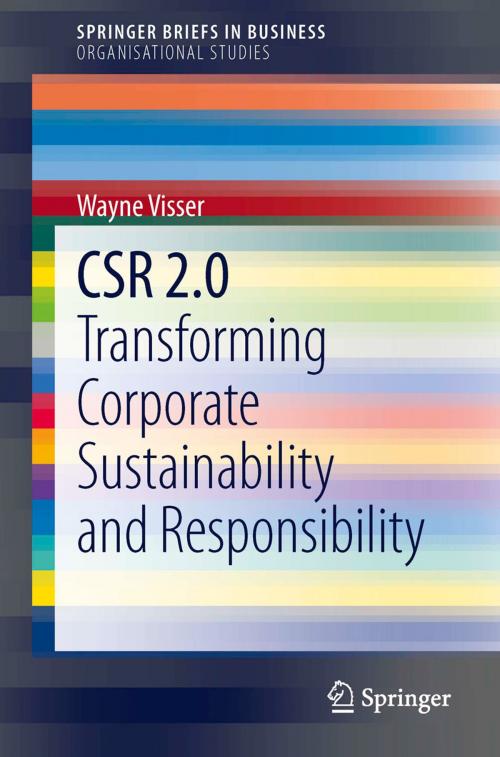CSR 2.0
Transforming Corporate Sustainability and Responsibility
Business & Finance, Business Reference, Business Ethics, Nonfiction, Science & Nature, Science, Biological Sciences, Environmental Science| Author: | Wayne Visser | ISBN: | 9783642408748 |
| Publisher: | Springer Berlin Heidelberg | Publication: | October 15, 2013 |
| Imprint: | Springer | Language: | English |
| Author: | Wayne Visser |
| ISBN: | 9783642408748 |
| Publisher: | Springer Berlin Heidelberg |
| Publication: | October 15, 2013 |
| Imprint: | Springer |
| Language: | English |
The book examines the evolution and current state of corporate social responsibility (CSR), using a five-stage maturity model: defensive, charitable, promotional, strategic and transformative CSR. The first four stages are dubbed CSR 1.0 and characterise most current CSR practice, while the fifth stage is named CSR 2.0 (also transformative or systemic CSR) and describes emergent and future CSR practices. Reasons are given why CSR 1.0 approaches have failed to have any significant impact on the most serious global social, environmental and ethical challenges. The emergent CSR 2.0 will then be explored in detail by elaborating on five principles underlying the new approach, including: creativity, scalability, responsiveness, glocality and circularity. A four-part DNA Model is also introduced, covering value creation, good governance, societal contribution and ecological integrity, which provides the basis for defining and measuring CSR 2.0. Finally, a 70-question CSR 2.0 self-assessment diagnostic tool developed by the author is presented, with sample data to show how the tool can be used for future research and practitioner application.
The book examines the evolution and current state of corporate social responsibility (CSR), using a five-stage maturity model: defensive, charitable, promotional, strategic and transformative CSR. The first four stages are dubbed CSR 1.0 and characterise most current CSR practice, while the fifth stage is named CSR 2.0 (also transformative or systemic CSR) and describes emergent and future CSR practices. Reasons are given why CSR 1.0 approaches have failed to have any significant impact on the most serious global social, environmental and ethical challenges. The emergent CSR 2.0 will then be explored in detail by elaborating on five principles underlying the new approach, including: creativity, scalability, responsiveness, glocality and circularity. A four-part DNA Model is also introduced, covering value creation, good governance, societal contribution and ecological integrity, which provides the basis for defining and measuring CSR 2.0. Finally, a 70-question CSR 2.0 self-assessment diagnostic tool developed by the author is presented, with sample data to show how the tool can be used for future research and practitioner application.















